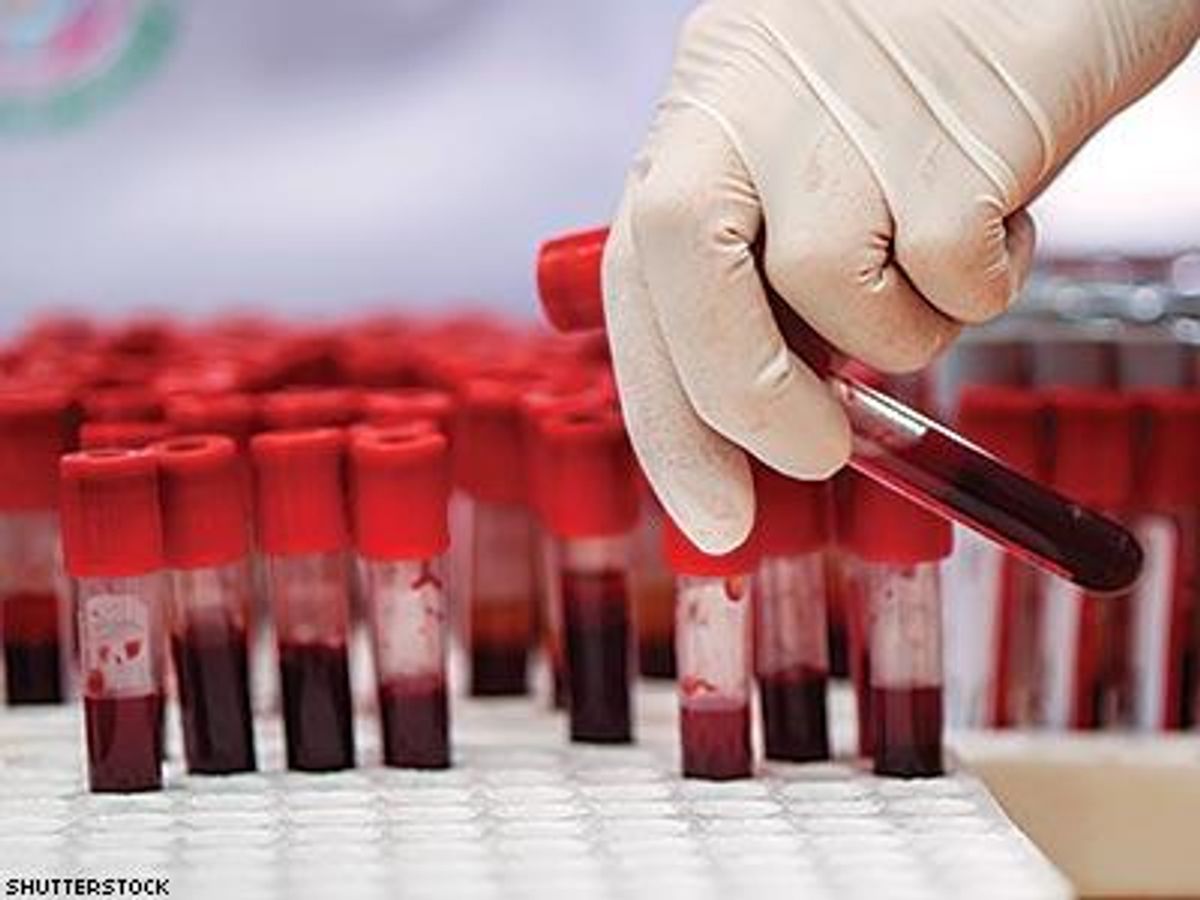 So you’ve just been diagnosed with HIV. You’ve found the right doctor and you’re ready to take control of your health, but how do you figure out what tools your body needs to stay at its peak? Your doctor will perform numerous tests to assess your needs, but these are some of the ones doctors use frequently to gauge how your body is dealing with HIV. Get to know them, because most of these tests will be performed whenever you visit your doctor, or at least every three months.
So you’ve just been diagnosed with HIV. You’ve found the right doctor and you’re ready to take control of your health, but how do you figure out what tools your body needs to stay at its peak? Your doctor will perform numerous tests to assess your needs, but these are some of the ones doctors use frequently to gauge how your body is dealing with HIV. Get to know them, because most of these tests will be performed whenever you visit your doctor, or at least every three months.
 CD4/T-cell Count
CD4/T-cell Count
This is one of the most common and helpful tests for figuring out how your body is reacting to the virus and to treatment. Knowing the number of CD4 cells, also known as T cells, in your blood allows your doctor to have a general overview of your immune system’s health. Because T cells send signals to activate your immune system when it’s exposed to a virus, it’s important to keep your count in the normal ranges. According to the Centers for Disease Control and Prevention, a healthy CD4 count ranges from 500 to 1,000 cells per cubic millimeter of blood. The CDC recommends that anyone with a T-cell count below 350 cells per cubic millimeter should seek treatment, but your doctor might start you on treatment before your T cells drop to that level.
 HIV Viral Load
HIV Viral Load
This checks the amount of active HIV in your blood and can help determine how well your body is responding to treatment. Depending on your viral load — the number of HIV particles, or “copies,” in your blood — your doctor might change your antiretroviral therapy, especially if your viral load tops 200 HIV copies per millimeter of blood. The goal is to have as few copies as possible, known as an “undetectable” viral load, generally considered to be between 40 and 75 HIV copies per milliliter, depending on the type of test administered, according to AIDS.gov.
Complete Blood Count
This routine test measures the number of white blood cells, which fight infections; red blood cells, which carry oxygen throughout the body; and platelets, which make blood clot. Because of white blood cells’ role in fighting disease, keeping track of them can help your doctor diagnose opportunistic infections. Since both HIV and antiretroviral therapy can affect your white and red blood cell and platelet counts, a blood count can also help your doctor figure out why you might be experiencing abnormal levels of fatigue, weakness, bruising, or bleeding.
 Blood Sugar/Glucose
Blood Sugar/Glucose
This test measures the amount of glucose in your blood, also known as blood sugar. Since HIV-positive people are at an increased risk for diabetes, and because some HIV treatments can affect the amount of glucose your body absorbs, it’s important to be screened for diabetes before starting any new treatment. Regularly monitoring your blood sugar levels also helps detect any early signs of insulin resistance, which can lead to diabetes.
 Lipids/Cholesterol
Lipids/Cholesterol
This test measures the amount of fat, also called lipids, being carried through the blood. It’s important to note that lipids include both the “good” cholesterol (HDL) and “bad” cholesterol (LDL), and that protease inhibitors and other drugs used in highly active antiretroviral therapy (HAART) can have an impact on lipid levels. Regular lipids tests can help your doctor determine if you should go on cholesterol-lowering drugs or change your diet. Smoking also increases the risk of elevated lipid levels.
 Comprehensive Metabolic Panel
Comprehensive Metabolic Panel
This lab test measures liver and kidney function in addition to assessing the levels of glucose, proteins, and electrolytes in your blood. A comprehensive metabolic panel tells doctors how well your kidneys and liver are filtering waste produced by your body, plus it measures your blood sugar levels and checks how well your cells are producing calcium, sodium, potassium, and other electrolytes needed for healthy organ function, in addition to carbon dioxide. Many HIV treatment regimens affect the liver and kidneys, so this is an important test for any HIV-positive person, but it’s especially critical for those who also have hepatitis B or C, since those conditions can have a severe impact on liver and kidney function.
Drug Resistance Tests
This test will let your doctor know if your particular virus is resistant — or unresponsive — to any type of antiretroviral drug. It can help your doctor determine which treatment regimen is best for you. If you’ve begun treatment and it isn’t lowering your viral load sufficiently, this test can help your doctor figure out why.

 So you’ve just been diagnosed with HIV. You’ve found the right doctor and you’re ready to take control of your health, but how do you figure out what tools your body needs to stay at its peak? Your doctor will perform numerous tests to assess your needs, but these are some of the ones doctors use frequently to gauge how your body is dealing with HIV. Get to know them, because most of these tests will be performed whenever you visit your doctor, or at least every three months.
So you’ve just been diagnosed with HIV. You’ve found the right doctor and you’re ready to take control of your health, but how do you figure out what tools your body needs to stay at its peak? Your doctor will perform numerous tests to assess your needs, but these are some of the ones doctors use frequently to gauge how your body is dealing with HIV. Get to know them, because most of these tests will be performed whenever you visit your doctor, or at least every three months. CD4/T-cell Count
CD4/T-cell Count HIV Viral Load
HIV Viral Load Blood Sugar/Glucose
Blood Sugar/Glucose Lipids/Cholesterol
Lipids/Cholesterol Comprehensive Metabolic Panel
Comprehensive Metabolic Panel















































































